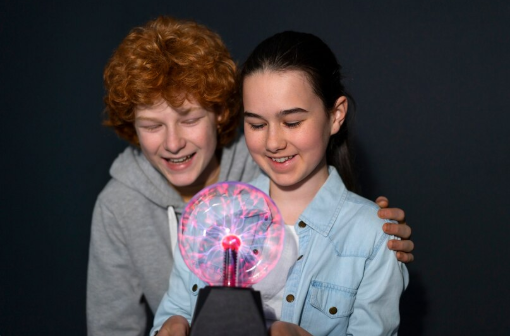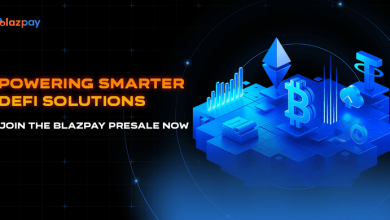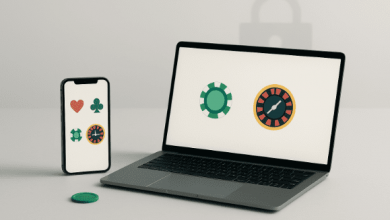Gen Z and AI: Redefining the Future Together

In an era defined by rapid technological advancement, few pairings are as influential as Gen Z and AI. Born between the mid-1990s and early 2010s, Gen Z has grown up in a world where artificial intelligence is not science fiction—it’s everyday life. From voice assistants and smart algorithms to personalized content and AI-driven tools in education, this generation is both a consumer and a contributor to the AI revolution.
A Generation Raised by Technology
Unlike previous generations who witnessed the birth of the internet or the evolution of smartphones, Gen Z is the first generation to be truly digital-native. They’ve had access to high-speed internet, cloud computing, and powerful smart devices since childhood. As a result, AI-integrated technology like facial recognition, predictive text, and TikTok algorithms are not only familiar but expected.
This constant exposure has made Gen Z incredibly comfortable with AI applications. Whether it’s using ChatGPT to brainstorm ideas for a school project or relying on Spotify’s AI-generated playlists, AI seamlessly fits into their daily routines. For Gen Z, AI isn’t an emerging trend—it’s the norm.
How Gen Z Is Shaping AI
The relationship between Gen Z and AI isn’t one-sided. Gen Z’s preferences, behaviors, and values are actively shaping the development of artificial intelligence. As one of the largest consumer demographics today, companies are leveraging AI to cater specifically to their tastes. For instance, social media platforms use AI-driven recommendation engines to serve content that resonates with Gen Z’s values—like social justice, sustainability, and inclusivity.
Moreover, Gen Z is more tech-savvy than any generation before them. Many young people are learning to code, experimenting with machine learning, and even creating AI-driven startups while still in college. They’re not just using AI—they’re building it. This generation is contributing open-source tools, working in AI research, and pushing the ethical boundaries of what AI should and shouldn’t do.
The Role of AI in Gen Z’s Education
Education is one of the primary areas where Gen Z and AI intersect significantly. Online learning platforms such as Khan Academy, Duolingo, and Coursera have been enhanced by artificial intelligence to create personalized learning experiences. These platforms use AI to analyze learning habits, predict performance, and suggest tailored content—helping students learn more efficiently.
In classrooms, AI tools like plagiarism detectors, automated grading systems, and virtual tutors assist teachers in delivering better education. For Gen Z students, having an AI study buddy is as normal as having a calculator or a textbook.
As AI continues to evolve, it could revolutionize traditional education even further—potentially replacing outdated models with customized, immersive learning environments powered by virtual reality and AI-driven feedback loops.
AI and the Gen Z Workforce
As Gen Z begins to enter the workforce in large numbers, they bring with them a distinct set of expectations—especially when it comes to technology. This generation favors flexibility, automation, and digital collaboration. AI fits seamlessly into this vision of the workplace.
AI is already transforming job roles through automation of repetitive tasks, data analysis, and real-time communication. Tools like Slack bots, AI-powered CRMs, and automated content generation platforms are becoming staples in modern businesses. Gen Z not only embraces these changes but often demands them.
However, this also brings up concerns. As automation increases, some fear a loss of job security. Gen Z workers are keenly aware of this tension. While they’re excited about AI’s potential, they’re also advocating for new skill sets, ethical guidelines, and a shift in education to prepare for an AI-dominated future.
Ethical Awareness: A Gen Z Signature
One of the most interesting dimensions of Gen Z and AI is the generation’s heightened ethical consciousness. Gen Z isn’t just concerned about what AI can do—they care deeply about what it should do. Issues like data privacy, algorithmic bias, and AI accountability matter to this demographic.
Movements calling for transparent algorithms and fair AI practices are gaining traction largely due to Gen Z’s vocal activism. They’re asking tough questions: Who controls AI? Who benefits from it? Are AI systems discriminating against marginalized groups?
This ethical scrutiny is vital. With Gen Z leading the charge, tech companies are being pushed to prioritize responsible AI development. From demanding better data transparency to advocating for ethical AI in hiring and law enforcement, Gen Z is playing a crucial role in shaping AI’s moral compass.
AI in Gen Z’s Social Life
Social media is arguably the most visible arena where Gen Z interacts with AI daily. Platforms like Instagram, TikTok, and Snapchat use AI to determine what content is shown, which ads appear, and how filters work. These algorithms influence trends, shape opinions, and even affect mental health.
While Gen Z appreciates the personalization AI brings, they’re also aware of the downsides—like echo chambers, misinformation, and addiction. As a result, there’s growing interest in digital detoxes, ethical content consumption, and even decentralized platforms that use AI more transparently.
AI is also being used in virtual influencers and deepfakes—blurring the line between reality and fiction. Gen Z, with their sharp media literacy, often understands and navigates these nuances better than older generations, but they still demand better controls and clarity.
Entrepreneurship and Innovation
Gen Z’s entrepreneurial spirit is thriving, and AI is a big part of that. From launching AI-powered fashion brands to developing mental health chatbots, young innovators are using AI to solve real-world problems. Platforms like GitHub, Hugging Face, and Google Colab provide them with the tools to explore, experiment, and create without the need for vast resources.
In many ways, AI is democratizing innovation. With free online resources and open-source models, a teenager today can create an AI product in their bedroom that could compete with legacy tech firms. This shift is leveling the playing field—and Gen Z is running with it.
Challenges and Concerns
Despite all the benefits, the relationship between Gen Z and AI isn’t without challenges. Over-reliance on AI can hinder critical thinking and creativity. There’s also the issue of digital inequality—not every Gen Z individual has equal access to the tools and knowledge needed to participate in the AI revolution.
Mental health is another major concern. Algorithms optimized for engagement often lead to doomscrolling and digital burnout. Gen Z is pushing back by advocating for healthier tech habits and supporting mental wellness innovations powered by AI.
Conclusion: A Symbiotic Future
The bond between Gen Z and AI is strong and growing. This generation isn’t just using AI passively—they are shaping its development, questioning its ethics, and imagining new ways to use it for the betterment of society. As we move deeper into the age of intelligent machines, Gen Z will be at the forefront—driving change, demanding responsibility, and ensuring that AI serves humanity, not the other way around.
In the end, the future of AI and the future of Gen Z are inextricably linked. And that’s a good thing—for all of us.





